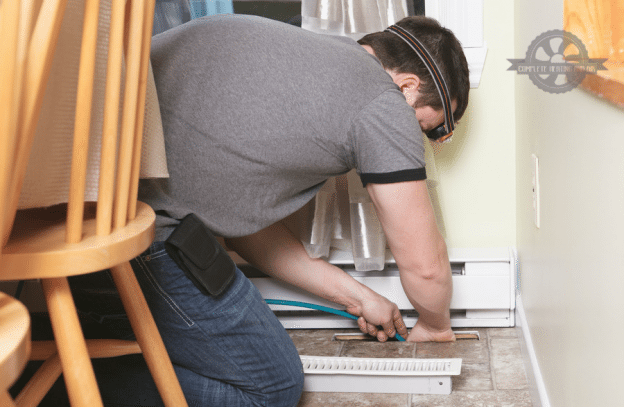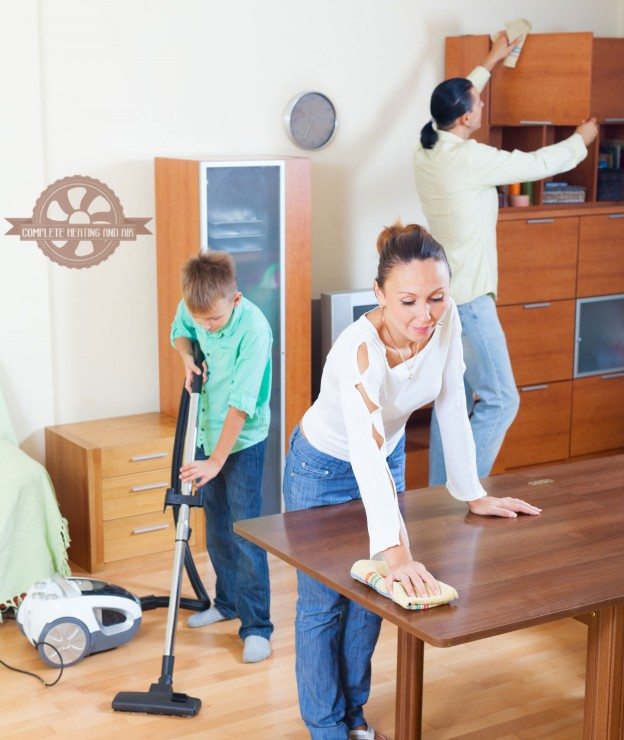Last week on the Complete Heating and air’s blog we talked about a few ways to improve your indoor air quality. This week we wanted to share a few more reasons why you should care about the quality of the air inside your home.
The quality of our indoor air affects the quality of our health. Most people spend the majority of their time indoors, and indoor air pollution is typically higher than the air outside. Spending more time outside and breathing fresh air is a great way to improve the kind of air your breath. However, during the winter months most people don’t get outside as often as they may like to. And if you live in Utah, you know the air quality outside with the inversion is not a superior option.
The Environmental Protection Agency says the average person breathes more than 3,000 gallons of air each day. Exposure to poor air quality can leave your eyes nose and throat irritated, headaches, dizziness and fatigue. There are many things you can do to improve your indoor air quality. You can find our list of suggestions here, and a much more in depth guide from the EPA here.
But one thing you can do that will make a big difference in the quality of your indoor air is to have your HVAC system inspected annually for regular maintenance and for any damage. Instructions for the service and maintenance of your system is important for you to follow, especially instructions on when you should change your filter.
Besides the suggestions from last week, an AC tune up can make a huge difference when it comes to improving your indoor air quality. The heating and cooling system in your home plays a major role in your comfort. If you take a minute to stop and think just how much you depend on your HVAC system, an AC tune up each season is a no-brainer and a necessity. Typically, you want to check your system before each heating and cooling season, to make sure everything is working properly before you are stuck in weather that is too hot, or too cold.
The inspection and preventative maintenance that accompany your AC tune-up will leave you with the peace of mind that your heating and cooling isn’t going anywhere, as well as improve your indoor air quality. Ideally, your AC unit should be inspected each spring before the “cooling season” begins.
Schedule a professional AC tune up
When you have an AC tune-up performed, you can avoid unexpected breakdowns, improve efficiently and system performance, operate more safely, prolongs your system’s life, improve the overall level of comfort and reduce your utility bills. By enlisting the help of the professionals at Sandy Heating and Air Conditioning you know you’ll be getting the attention you and your AC need.
Typically, an AC tune up will include:
- Measurement of important system components
- Inspection of wear or damage of components
- Measuring refrigerant levels for the best performance
- Tightening, adjusting, lubricating and or flushing components
- Checking overall system air flow and operation
If you’re still not convinced that you need an AC tune up, keep in mind that to keep a warranty in effect, many manufacturers require an AC tune-up. And an uncleaned or unmaintained system can lose up to five percent efficiently! So take a simple step by calling Sandy Heating & Air Conditioning to improve your air quality, prolong your system and save you money in the long run.


